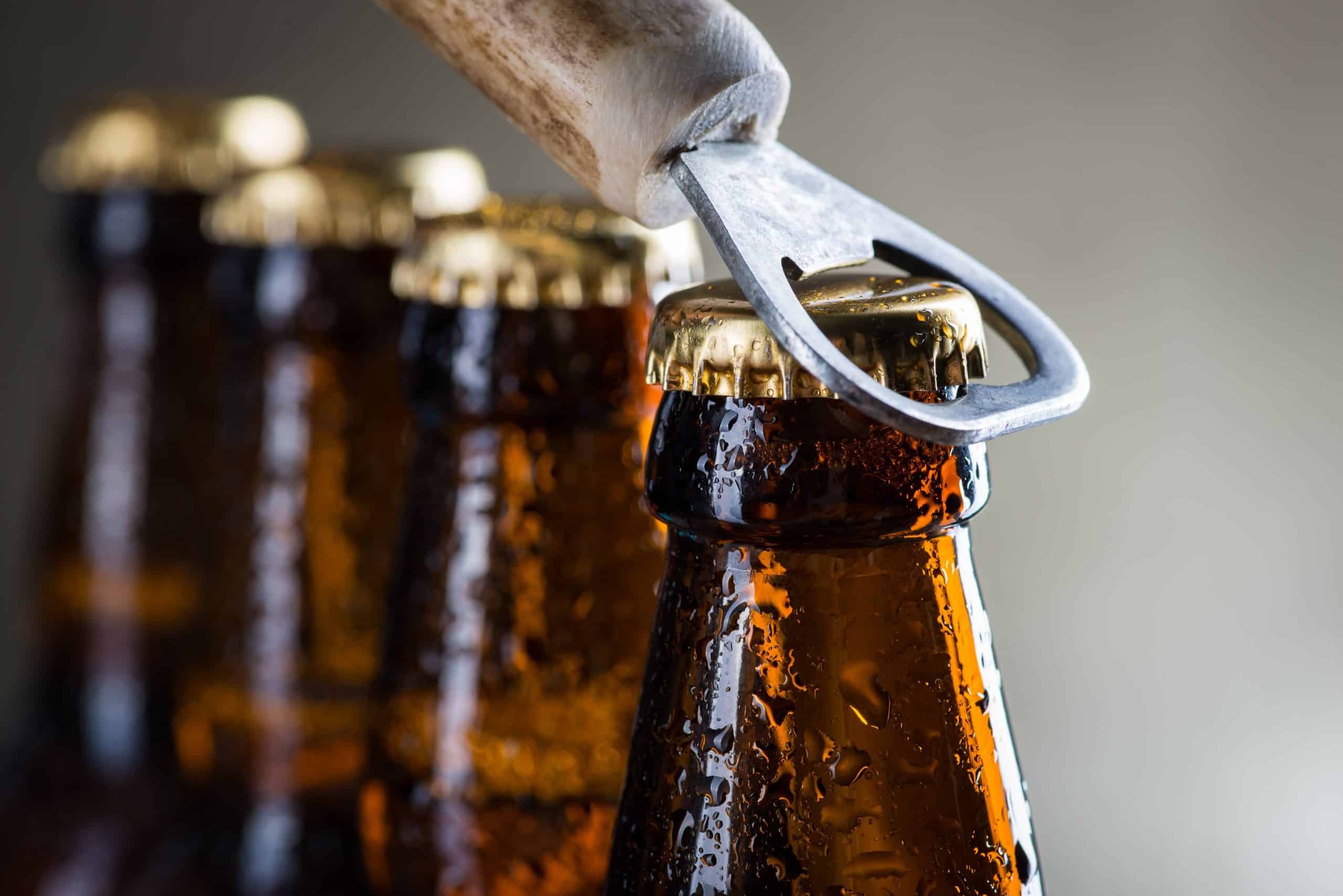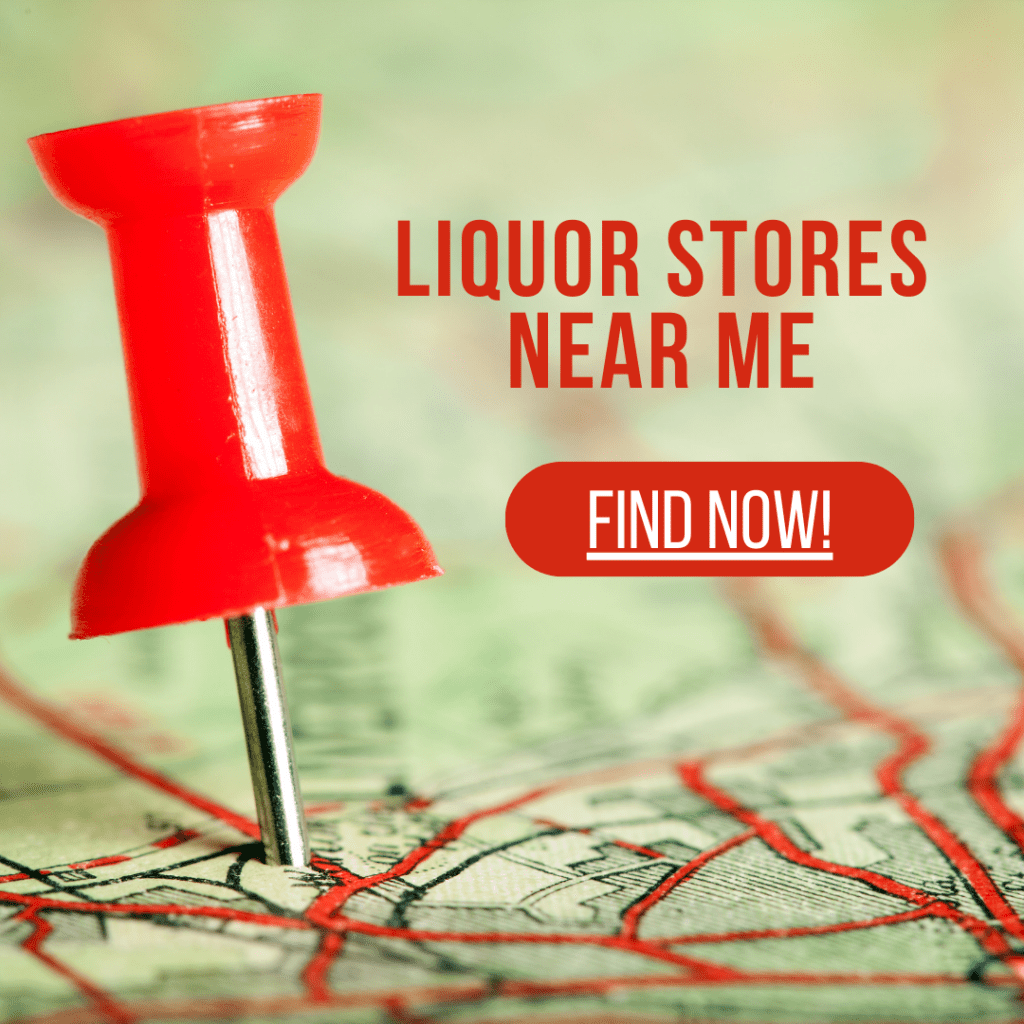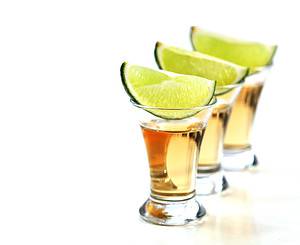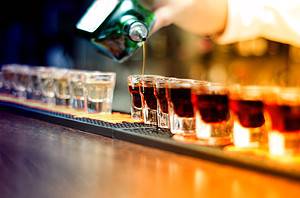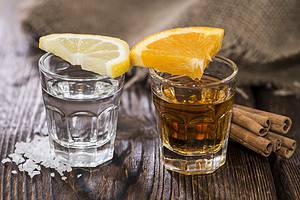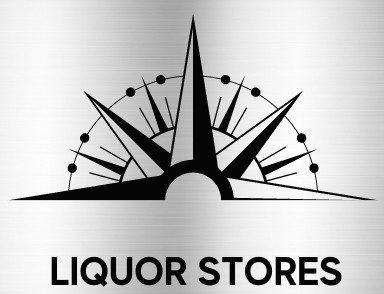When it comes time to buy alcoholic beverages, you will likely hear people describe liquor retail outlets as either a liquor store or a package store. While the term liquor store is pretty self-explanatory, the term package store commonly confuses people since the word package doesn’t sound like it has anything to do with liquor. With these common questions in mind, is there a difference between a package store and a liquor store?
Table of Contents
What Is the “Package” in Package Stores?
A liquor store and a package store are two different phrases that mean the same thing. Both phrases can be used to refer to a store that sells hard liquor and spirits. The ‘package’ in package stores refers to the practice of packaging liquor for off-premise sales.
In this guide, we are going to take a closer look at how liquor stores came to be known as package stores. We will explore the origins of the term and explain which phrase is actually the correct terminology to use when referring to liquor retail outlets. Furthermore, we will also take a look at how liquor stores and package stores are regulated in addition to answering some common questions about the many names used to describe a liquor store.
What Is a Package Store?
A package store is a term that dates back to at least the 1890s, and mainly revolves around the notion of liquor and alcoholic beverages that are sold in ‘packages.’
Therefore, a package store is a retail store, some state-operated, some private, that sells liquor and alcoholic drinks in packaged containers. Essentially, this is meant to differentiate the style of the drink apart from a bar, tavern, or restaurant that serves mixed and opened alcoholic beverages to paying customers.
The ‘package’ aspect of the term refers to unopened bottles and containers that are sold for consumption off the premises, usually at a person’s home for their own private collection and consumption.
History of the Term
In the last decade of the nineteenth century, the United States was rapidly developing thanks to industrialization and the rise of commerce.
In terms of liquor sales and consumption, having a drink was still very much an outing and those wishing to drink would need to go to local bars and some dining establishments to consume liquor or alcohol of any kind. That is of course for drinkers and casual drinkers that didn’t make their own brews at home.
Both federal law and individual state laws were in chaos when it came to the legalities surrounding alcohol and its distribution. In 1890, the U.S. Supreme Court made a ruling in Leisy v. Hardin which stated that liquor, beer, and wine could be sold across state lines and to consumers granted it was sold in its original, manufactured ‘package,’ meaning it could not be opened and altered in any way.
Congress reiterated that states still had the right to make and enforce their own liquor laws, which stands to this day, but South Carolina became the first state to open its own-state-operated package store, and the term was given an official status and recognition.
Package Liquor Store Terminology Explained
So, a package store and a liquor store mean practically the same thing. A store that sells liquor, beer, and wine and can mean both a state-run store or a private and licensed retailer.
Let’s take a look at some of the common idioms used to refer to a package or liquor store and to see if there are any distinctions behind the name.
Package Shop
A package shop is commonly used to refer to a package store; it’s just a word choice used by some people.
A package shop can sometimes be meant to refer to a smaller and more streamlined type of package store. This means the shop only has a few aisles, only sells liquor, or is a smaller and more convenient version of a state-run package store that you may find in convenience areas for travelers, etc.
Packie
The term ‘packie’ is a slang term used to refer to a package store, and this term is commonly used in the State of Massachusetts.
The term originates back to the time of the rise of package stores in the earliest years of the 20th century and is frequently found to be used in Boston sling terminology.
It’s a bit like the distinction that you hear throughout various parts of the country about carbonated beverages. Some areas call it ‘pop,’ other areas may say ‘soda,’ and some places simply refer to sodas by their manufacturer name.
ABC Stores
In some states, you may also hear of a package or liquor store referred to as an ‘ABC store.’ The ‘ABC’ stands for Alcohol Beverage Control, and this means that all package stores in the state (some states do not allow private package stores) are operated and supplied by the state government.
There are currently 17 out of 50 states in America that operate under this system. In these states, package stores are known as ABC stores. Some have restrictions according to Sunday blue laws.
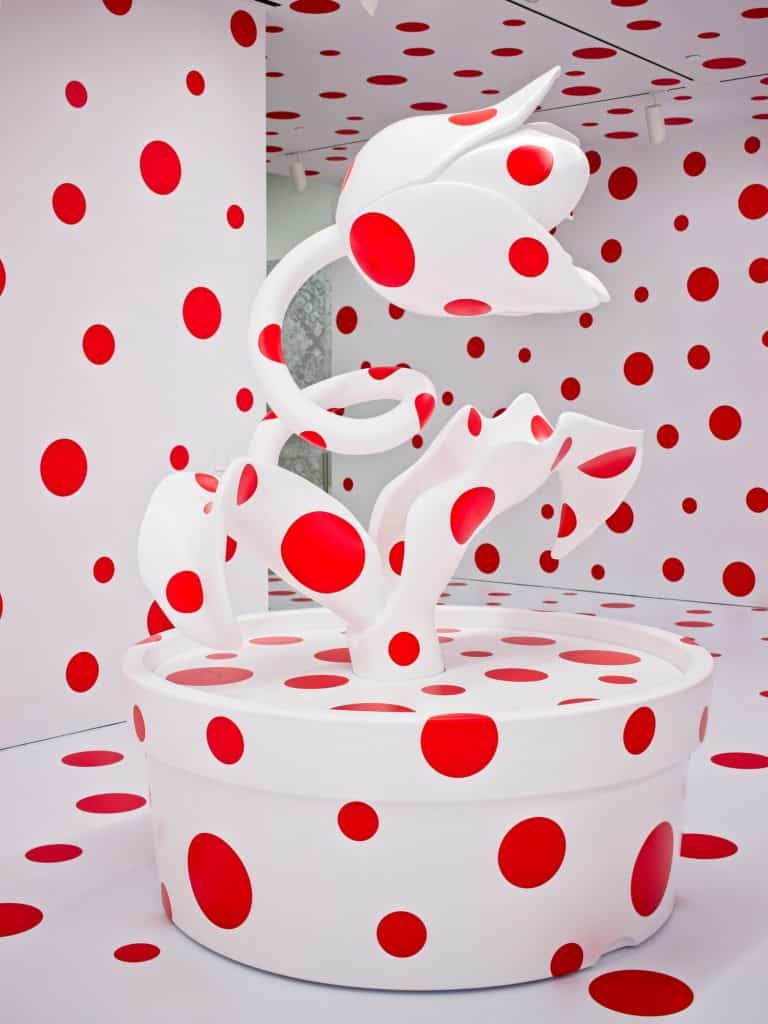
Red Dot Stores
In the State of South Carolina, package stores are also commonly known as ‘Red Dot Stores.’ This is because package stores in the state have 3 red dots (some may only use one or two) either on the sign or painted somewhere on the building.
The reason for the dots has both popular interpretations and a specific reason dating back to the rise of package stores in South Carolina in the 1890s.
In popular lore, some residents of the state like to say the dots represent the sun, and specifically, how liquor stores used to be open from sunrise to sunset.
The real reason dates back to the era in South Carolina after Prohibition ended in the early 1930s. Advertising restrictions against alcohol sales were in effect during these years, and a trend caught on whereas liquor store managers would start putting red dots on their stores to signify liquor sales.
It is now a standard with package stores in the state.
What States Call Alcohol Stores Package Stores?
Even though the term package store is synonymous with a liquor store, and package store was the original name given to the retail liquor sales specialty stores, not all areas of the country use the term.
In fact, most states use the term liquor store except for a few.
Alabama, Connecticut, Georgia, Louisiana, Massachusetts, Rhode Island, and Texas all officially and popularly refer to liquor stores as package stores.
This doesn’t mean that you will only hear liquor stores referred to as package stores, but this is mostly to do with long-established regional dialects that took hold at the time in history when package stores were popping up all over the country.
Some of these states also have alcohol concealment laws, also known as the ‘brown bag’ rule, with Alabama being one state that has this law. This means that alcohol sold at these stores or any retail outlet must be covered as it leaves the store and until it arrives back at the buyer’s home or destination.
This also plays back into the historical terminology related to the name ‘package store.’ During the earliest days of the 20th century, retail alcohol purchases arrived at people’s homes in brown packages when consumers ordered directly from distributors. It was also customary for brown bags or packages to be used after liquor was paid for in a package store and the customer left the store.
The stores have been called package stores ever since.
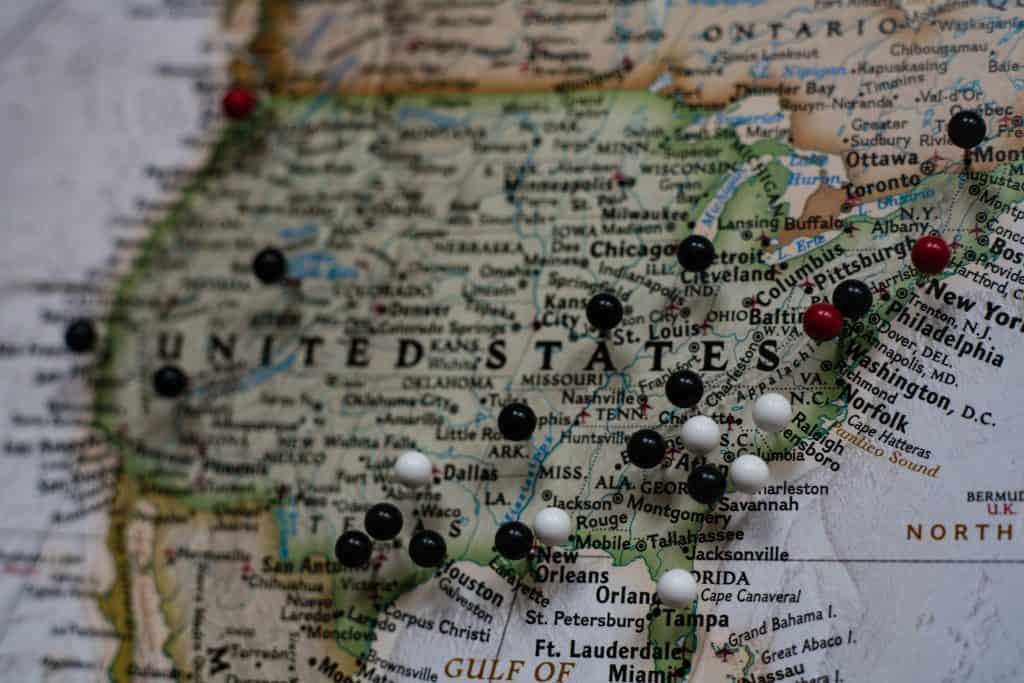
Do States Control and Operate Package Stores?
As mentioned, there are 17 states that control and operate the selling of liquor in a retail monopoly.
The 17 ABC store states are:
- Alabama
- Idaho
- Iowa
- Maine
- Michigan
- Mississippi
- Montana
- New Hampshire
- North Carolina
- Ohio
- Oregon
- Pennsylvania
- Utah
- Vermont
- Virginia
- West Virginia
- Wyoming
Not all of these states have strict laws regarding the sales of liquor in their state stores, but it is worth mentioning the package store laws in some of them since there are a myriad amount of rules and regulations in these states.
Iowa liquor laws are regulated largely by license and inspections. The hours during which alcoholic beverages may be legally sold and served are Monday through Saturday from 6 AM to 2 AM and liquor sales for Sundays are 8 AM to 2 AM.
To sell liquor on Sundays, retailers will need to apply and be approved for a Sunday sales privilege, which is required for all off-premises beer and all on-premises liquor, wine, and beer Sunday sales and service.
Licensees may not sell, serve or consume alcoholic beverages on the licensed premises for private parties or while cleaning the licensed premises on Sundays, unless they hold a Sunday sales privilege.
Iowa liquor sales are also broken down into classes of licensure. Only Class E liquor licensees (carry-out liquor), Class B wine permittees (carry-out wine), Class B native wine permittees (carryout native wine), and Class C native wine permittees (on-premise native wine) have a Sunday sales privilege as part of their basic license.
Since Montana is such a sparsely populated state, all of the liquor stores found throughout the state are run by the state government.
Since nearly all liquor stores in Montana are closed on Sundays, this severely limits the ability to purchase liquor in the state on a Sunday. With this said, there is no direct, state-mandated Sunday blue law, but you are likely only to find beer and wine selections available on Sundays due to the state monopoly on liquor stores.
Liquor laws in Ohio are largely classified as those requiring certain licenses for establishments to sell alcohol on Sundays. Sunday alcohol sales are authorized by permit class and local option election, which means a retail business must have the proper permit and local option authorization to sell any alcohol on Sunday.
Furthermore, there are no exceptions in Ohio law for a temporary change in authorized sales privileges due to holidays, special events, or extraordinary circumstances.
A liquor permit holder may sell alcohol Monday through Saturday based on their class of permit. Monday through Saturday sale hours begin at 5:30 AM and end at either 1:00 AM or 2:30 AM the next day, depending on the class of permit held.
Liquor laws in Utah are scattered, to say the least. With that said, the state is not completely dry as popular myth would have you believe; you can buy liquor in Utah, but it’s not advertised or pushed so to speak.
Utah does not have a Sunday blue law per se, but since liquor can only be sold at state liquor stores, which are closed on Sundays, this means that by default, liquor is not available in Utah on Sundays.
Individual counties can set their own laws on if beer and wine can be sold on Sundays.
Of these 17 liquor control states, Oregon, Vermont, and Wyoming tend to have the less-lenient regulations attached to their package stores. These are also the states that maintain their ABC oversight simply in terms of commerce, meaning there is no morality clause at play concerning any ideological interpretations on alcohol itself.
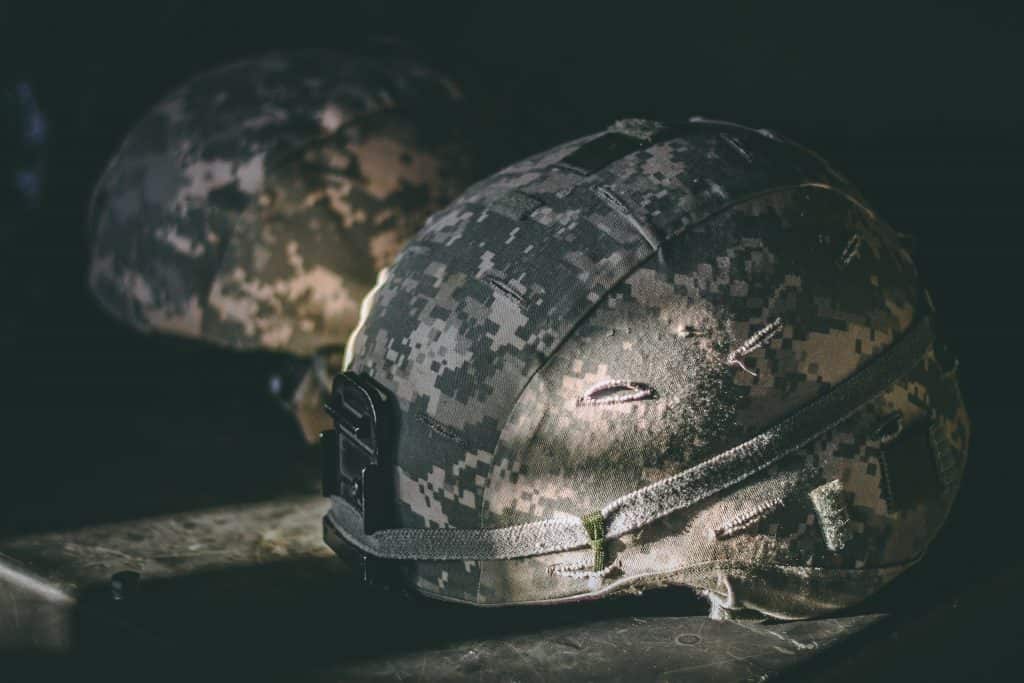
What Is a Military Package Store?
In military terminology, you may have heard the word ‘commissary’ used before, and this is a wide-reaching term used to refer to a military convenience store.
Within a commissary, and sometimes separately, you can also find a military package store on various military bases across the country.
These shops are also known as a ‘base exchange (BX)’ or a ‘PX’ store, and the sale of liquor has always been a part of a PX’s inventory.
A PX is set up to resemble a department store, and shopping privileges for these stores are extended to active duty personnel, retired Armed Forces personnel, and their legal dependents.
The liquor section within a PX is also known as a military package store, and this is a class 6 package store in military terminology.
Military package stores are not open to the general public, nor can friends or non-married partners of military personnel shop at these stores.
Why Are Package Stores Called ‘Off-Premise’ Stores?
Package and liquor stores, and virtually anywhere that alcoholic beverages are sold in a retail exchange environment are known as “off-premises.”
This means that the alcohol being sold to consumers is bought and must be consumed off the premises surrounding the store.
This is in direct contrast to an ‘on-premise’ establishment. On-premise drinking refers to bars, lounges, taverns, events, hotels, casinos, and restaurants that serve alcohol to customers from a bar.
Like with package stores, states also have rules and regulations that one-premise establishments serving alcohol must follow. In nearly all states, this comes with a 2 AM cut-off time for the sale of alcoholic beverages, and many states also have starting times, typically between the hours of 10 AM-12 Noon.
What Is an On and Off-Premise License?
In addition to the various differences that come with on and off-premise alcohol sales, both establishments and package stores may also have a range of licenses that can cause overlap with these general rules.
A package store is almost always going to hold an off-premise license only. With this said, there could be an example of a package store that may also have an additional license for on-premise sales if there is also a bar operating on site. But this doesn’t mean you can make a package purchase and then open and consume it in the bar area.
If you make a purchase at a package store, the law dictates that you must leave the store with the purchase and consume it elsewhere. If you were ever to encounter a package store that has this set-up, you could only utilize the services of one or the other.
Additionally, an on-premise establishment may also hold a dual license in regions where the law permits such activity. For example, it is legal in New Orleans, Louisiana to purchase an alcoholic beverage at a bar or lounge and then leave the establishment with the beverage. These are examples of an on-premise establishment that also has an additional off-premise liquor license.
Furthermore, individual state laws will also supersede and set out rules and regulations that must be followed in any of these scenarios. If you find yourself in a dry county, for example, you cannot buy liquor or alcohol at all anywhere within county lines.
Summary
In conclusion, there is no noticeable difference between a package store and a liquor store: they are one and the same. The terminology behind the term package store dates back to the turn of the twentieth century and became even more prominent in the years succeeding the end of Prohibition and alcohol’s re-entry into retail.
Almost all the terms and phrases you may hear concerning a liquor store, all of these terms are referring to the same thing—a liquor store.

